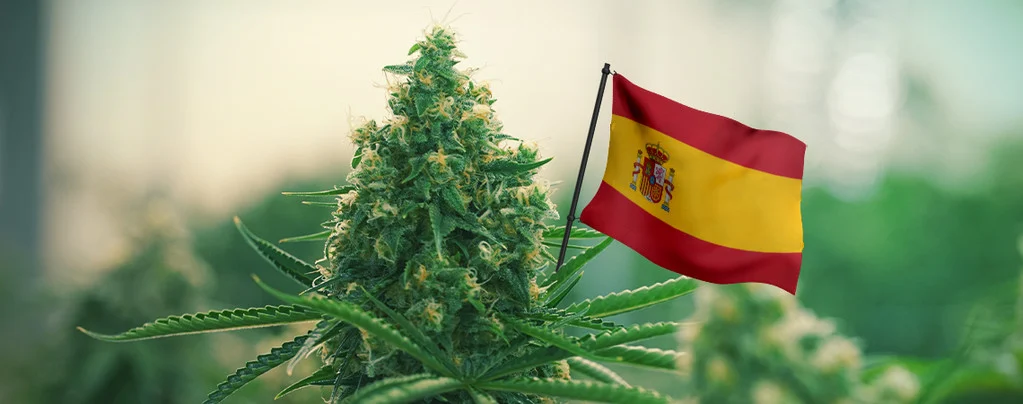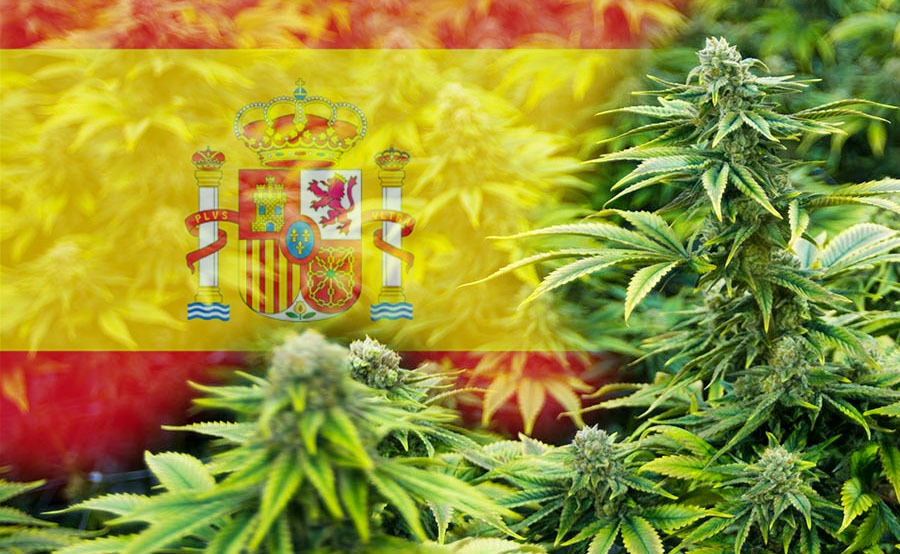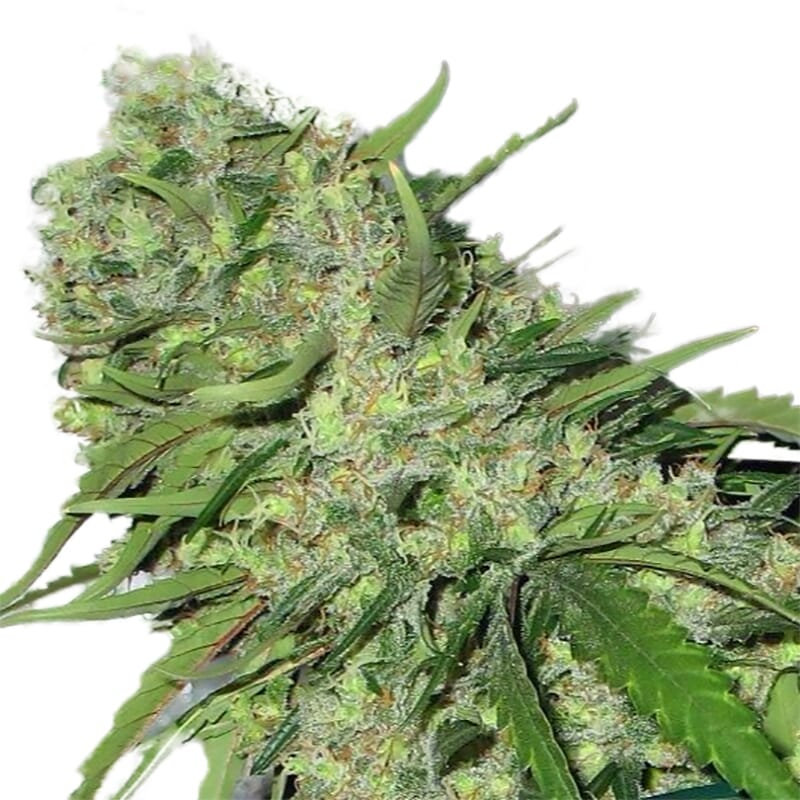Spanish Pharmacies and Medicinal Cannabis
The Ministry of Health of Spain has initiated a public consultation to gather opinions from civil society, organizations, professional associations, and scientific societies regarding the medicinal use of cannabis. The purpose is to create a royal decree that establishes regulations for the therapeutic use of this plant with psychoactive properties.
This step follows the formation of a subcommittee in the Health and Consumer Affairs Committee in June 2021, as agreed upon by the Congress of Deputies. The subcommittee aimed to analyze international experiences and scientific evidence related to medicinal marijuana.
History and Properties of Cannabis
Originally from Asia, the marijuana plant (Cannabis sativa L.) is now cultivated worldwide for industrial and pharmacological purposes. Historical documents confirm its medicinal use in the Chinese Empire 4,500 years ago.
Pharmacologically, marijuana contains cannabinoids that interact with the cannabinoid system in the human body, triggering various responses. Among the studied cannabinoids are THC, responsible for psychoactive effects, and CBD, which has analgesic and antiepileptic properties.

Therapeutic Use and Pharmaceutical Aspects in Spain
In Spain, the only pot-based medication available in pharmacies is Sativex, approved in 2010 for treating pain and spasticity in multiple sclerosis. Sativex contains THC and CBD and is dispensed in hospitals by specialized pharmacists.
Legally, marijuana has been considered a narcotic substance since the Single Convention on Narcotic Drugs of 1961. However, interest in its therapeutic use has grown, with scientists, doctors, and patient associations advocating for its use in treating various pathologies.
The deadline for submitting contributions to the Draft Royal Decree that will regulate the prescription and dispensing of medicinal marijuana in Spain is March 4, 2024.
Legalization and Marijuana Culture in Spain:
Marijuana stands as the most widely consumed illegal drug in Spain. According to the 2017 EDADES report, 9.1% of individuals aged 15 to 64 surveyed admitted to having smoked weed in the past 12 months, with 1.9% consuming it daily. Predominantly, these are men (70%) with an average age of around 34 years old. 35% of respondents claimed to have tried the drug at some point. Spanish society exhibits considerable tolerance towards weed, as evidenced by a 2018 CIS survey where 84% supported its medicinal use and 47% endorsed both medicinal and recreational use, while 41% rejected it. Additionally, according to the European ESPAD 2019 report, 23% of Spanish students said they had tried weed at least once in their lifetime, with 12% consuming it in the last 30 days, ranking Spain as the third country in the EU in this regard, after Italy and France.
Article 368 of the Penal Code establishes penalties for the cultivation, manufacture, trafficking, and illegal possession of drugs, as well as for activities that promote their consumption. Consumption, possession, and cultivation of cannabis for personal use not intended for drug trafficking (up to 10 kg) are not considered a crime. However, consuming in public spaces is a serious offense, with fines ranging from €601 to €30,000. Spanish law does not distinguish between medicinal and recreational use of weed.
The legal status of marijuana varies by autonomous community. For example, controlled legalization was approved in the Valencian Community in 2018, while Catalonia has had a semi-legal situation since 1993, where licenses are granted for cultivation in private clubs, and consumption is allowed for their members.
The legal status of marijuana in Spain has been under review for several years. Additionally, since the 1990s, there has been an increase in medical research on cannabinoids and their interaction with the endocannabinoid system, as well as an increase in the development and marketing of pot-derived products, along with fairs dedicated to these products.

Legal Provisions
Article 368 of the Penal Code prohibits the business, trafficking, and cultivation of drugs, with imprisonment and fines. Outside of these cases, possession for personal use is not punished, but Organic Law 4/2015 punishes as a serious offense the illicit possession in public spaces, with fines ranging from €601 to €30,000, as well as other related activities.
Favorable Politics
In Spain’s democratic stage, there have been isolated cases of political groups advocating for the total legalization of cannabis, such as Izquierda Unida. However, it was in 2015 when two political parties, Unidas Podemos and Ciudadanos, proposed a review of the law for the protection of citizen security.
Cannabis Culture in Spain
Marijuana consumption in Spain became popular in the post-Franco era, especially during the Movida Madrileña in the 1980s. The hippie and countercultural movement contributed to its spread, mainly imported from Morocco in the form of hashish. Cannabis culture has left its mark on Spanish society, with expressions like “bajarse al moro” (literally “going down to the Moors”) and publications like Cáñamo Magazine.

Cannabis Social Club Associations
ENCOD considers Spanish cannabis social clubs as a model to follow. These non-profit associations have been acquitted by the courts in Catalonia and the Basque Country. In other regions, such as Catalonia and Aragon, projects have been launched to legalize the sale of therapeutic marijuana.
Social Tolerance
Spanish public opinion shows a relatively high tolerance towards marijuana, according to the 2017 EDADES survey. Although 66.1% of the population believes that occasional consumption can cause problems, it is lower compared to other drugs, and there has been an increase in the therapeutic use of cannabis.
Therapeutic Uses
According to the Spanish Observatory of Medicinal Cannabis, there were between 50,000 and 100,000 medicinal marijuana consumers in Spain in 2018. There have been significant advances in researching the therapeutic effects of weed, with clinical studies and launches of pot-based medicines, such as Sativex.

German Experience and Other Countries
In Germany, doctors have been able to prescribe pot-based treatments since 2017, either in the form of flowers or formulated medications. Dispensing takes place in pharmacies through special prescriptions for narcotic substances. This approach has commonly been applied in patients with serious illnesses such as cancer, neurological diseases, and HIV, taking advantage of the analgesic and appetite-stimulating effects.
Other countries such as the United States, Canada, the Netherlands, and Finland have already legalized the medicinal use of marijuana.
Disclaimer: The content provided in AMS blog articles, including those related to medical seeds, is strictly for informational and entertainment purposes only. It is not intended to be taken as medical advice. For any medical concerns or questions, we strongly recommend consulting with a qualified healthcare professional. Your health and well-being are important, and a healthcare provider can offer personalized advice and guidance based on your specific needs.
















